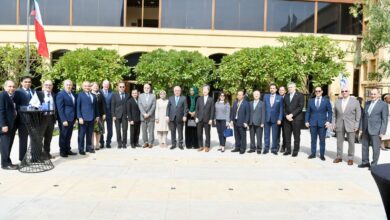Ministries struggle to adapt to evening shifts in debut week
Many ministries and entities have delayed fully implementing evening work, citing staff shortages, lack of public services, unprepared sectors, or employee reluctance.

• Some official bodies have sought clarification on evening work and the sectors involved, citing reluctance from ministries due to a lack of public services and unclear directives.
A week has passed since the introduction of evening shifts on the fifth of this month in the Civil Service Bureau and various governmental and official bodies. However, it has become evident that the demand for evening work in ministries and state entities remains limited in this initial phase, with some entities reportedly not fully adhering to the implementation of the decision, according to Al Jarida newspaper.
Government sources revealed to the newspaper that many ministries and entities have failed to fully implement evening work, citing reasons such as a lack of personnel, the absence of services provided to the public during evening hours, prior evening work arrangements, or the unpreparedness of their sectors. Some entities have even requested to postpone implementation to later stages, citing the lack of willingness among employees to work in the evening.
The sources also noted that some official bodies have requested further clarification about the nature of evening work and the sectors required to operate during that period. They highlighted that certain ministries have shown reluctance to implement evening shifts due to a lack of services for the public and confusion surrounding specific directives from the ministries.
It was also reported that the government entities currently implementing evening shifts have not adhered to the workforce percentage set by the bureau—between 20 and 30 percent, as directed by the Council of Ministers. Instead, these entities have provided no more than tenpercent of their workforce during the evening period, with plans to gradually increase this figure to meet the required range.
The sources indicated that the bureau has issued new circulars instructing government agencies to adhere to evening work requirements and form work teams within the same sectors to monitor operations and assess the level of job commitment.
In its directives, the bureau emphasized the importance of assigning a public official to oversee evening shifts in ministries that have begun implementation. This official will be responsible for supervising the attendance and departure process.
The sources stated that the bureau plans to submit a preliminary report to the Council of Ministers on the progress of evening work implementation. This report will highlight the authorities that complied with the decision during the trial period, those that lagged behind and offered excuses, and others that renewed their reluctance to implement the program. The goal is to provide the council with a comprehensive overview of the situation across all entities.
Previously, the bureau outlined the objectives of evening work, which include improving the work environment in the government sector, streamlining procedures, increasing productivity, addressing workplace overcrowding, and reducing disguised unemployment.
The implementation is structured into three phases: the first phase began on January 5, marking the start of the program. The second phase, lasting six months, involves pilot operations to evaluate and address issues. The third phase focuses on stability, with reports submitted every two months starting from the end of the second phase.
The bureau emphasized that evening work would benefit government entities by boosting employee productivity, enhancing the final output of entities, expanding government services, serving public needs more effectively, and reducing morning traffic congestion. Additionally, it highlighted social advantages for Kuwaiti families.
Notably, the evening work program will span seven consecutive months, and employees are not permitted to switch back to morning shifts during this period.












